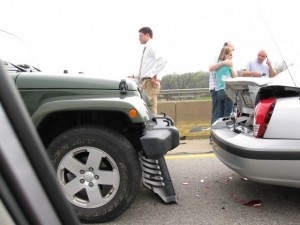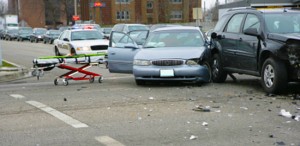 Low impact auto accidents are generally incidents that take place at speeds less than 10 miles per hour. These types of collisions usually cause the least amount of damage to the vehicles involved. Victims of low impact auto accidents often resist seeking medical attention because they may not initially feel the impact of the accident. Even with this type of low impact accident, soft tissue injuries may still occur.
Low impact auto accidents are generally incidents that take place at speeds less than 10 miles per hour. These types of collisions usually cause the least amount of damage to the vehicles involved. Victims of low impact auto accidents often resist seeking medical attention because they may not initially feel the impact of the accident. Even with this type of low impact accident, soft tissue injuries may still occur.
One client of mine did not initially seek medical attention; however a few days later she began having severe neck and back pain, and headaches. Eventually the pain got so bad that she finally went to her family doctor. The doctor recommended testing and physical therapy. Tests uncovered that she had suffered a serious back injury. The insurance company told her they would only pay for a small portion of the medical expenses plus a few thousand dollars for her pain and suffering. The insurance adjusters had made this response as a result of the minimal damage to her vehicle.
Fortunately my client did not sign anything right away, but instead consulted with me about the case. We were able to settle the case to her satisfaction by taking the best course of action after analyzing all of the facts and evidence.
The Cunnane Law Office has provided this content for informational purposes only. You should refer your questions to a personal injury attorney.








